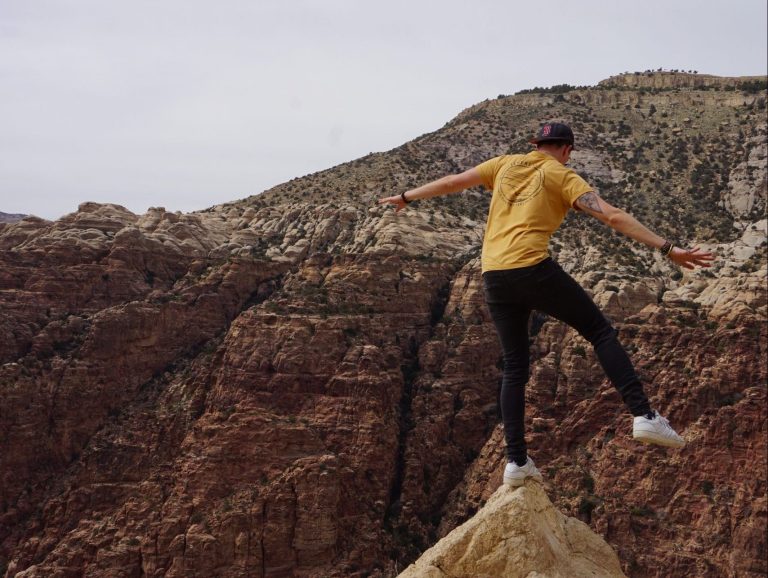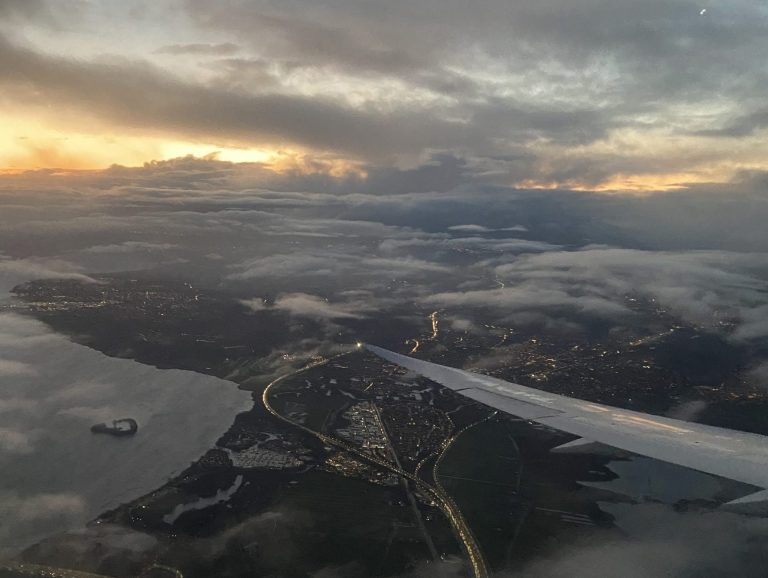Plan The Trip Of Your Dreams
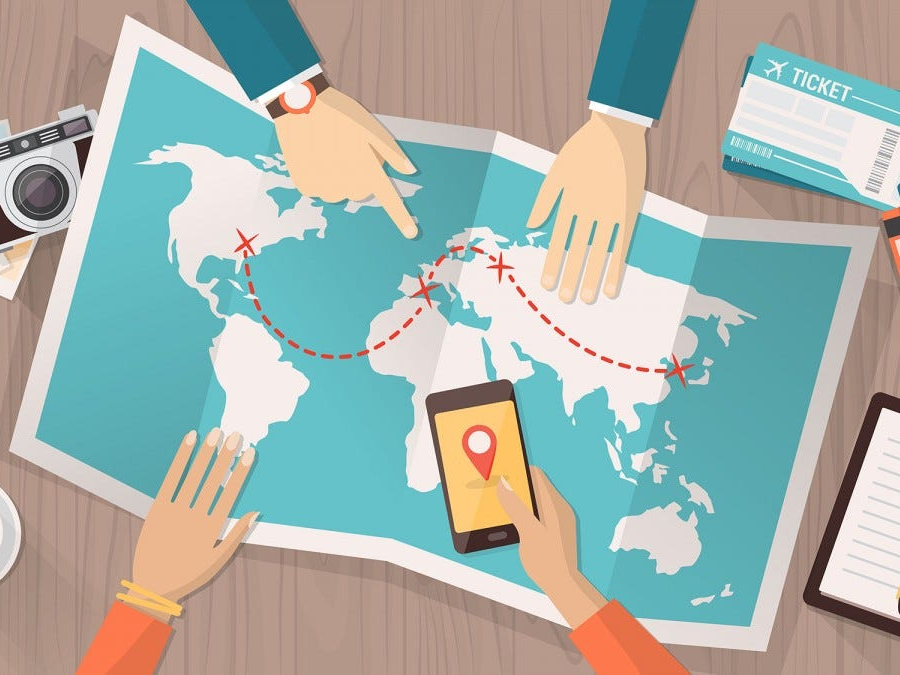
Forget about agencies and organized trips! Learn to design the trip of your dreams in 7 easy steps.
Like everything in life, there is no one correct answer for everything. But my goal is to give you the highest visibility and 100% transparent opinion on how to travel in each country or region of the world, minimizing the impact on your pocket and maximizing your experience in the place.
Planning your trip
Should I or shouldn’t I reserve everything in advance? My learning over the years is that no, and that is that you can read my posts, or anyone else’s. But in the end, you are the one who will decide when you are at the destination, if Bangkok is enough in three days or Bogotá is enough for you in one morning while you wait to catch your flight.
Route planning is one of the best parts of the trip. Discover for yourself what awaits you at each destination.
That does not mean that you must plan your trip and know which places X, Y and Z you want to see and you will not miss out on anything in the world on your trip. So, here is my way of planning my trips:
#1 Buy the outbound flight (and back, if you plan to return)
Let’s start with the first, and in the first point two possible situations can already arise.
You are certain about your destination: In this case the options are quite simple although not so obvious. Use the meta search engines, although Ryanair is the theoretically cheapest company, do not take it for granted. Browse, explore and above all compare. Option A may be the one that costs you the most, but you arrive at 3 in the morning at a place that is not very safe or you make a three-day getaway and the cheapest flights leave in the afternoon and return in the afternoon. Tomorrow so three days we stay with one.
You are uncertain about your destination: Did you think you were the only one? Well no, and don’t be overwhelmed because finding an appropriate destination among 193 countries that exist in the world is not an easy task. For this reason Skyscanner created the option of “Anywhere” and “Any date”. So if you have flexibility, play with the dates and destinations and do not close your mind to a flight to Kazakhastan for € 400!

Keep in mind that on most long-haul flights, stopover flights are often cheaper than direct ones because they thus distribute costs between perhaps less efficient routes. Not only that, but many business travelers with less price elasticity do not mind paying more for their tickets on direct routes or one-way tickets with the open return.
Always buy back and forth on your long-distance trips
In this way you can find that Barcelona-Singapore with a stopover in Istanbul with Turkish Airlines is cheaper than a direct flight with Singapore Airlines. Likewise, those four roundtrip flights will cost you the same as just one way in either case.
The meta search engines par excellence are Skyscanner and Momondo.
#2 Know your destination:
I am a huge fan of the Lonely Planet. Although more graphical, I would not recommend the pocket ones, since they tend to have many images and little data. Over time I have been moving to the larger versions, where you will find much more detail of the main cities and even remote places.
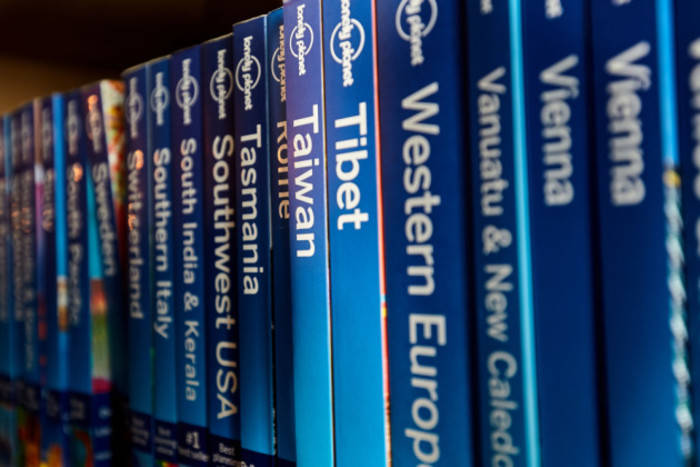
Read blogs, not one, not two, not three, as many as you can. Each person travels differently and not everyone conceives a place or an interest in the same way and can omit valuable information that another traveler has considered very relevant.
#3 Print a map of the city or country you are going to visit
You may be thinking, why am I going to do this if I already have Google maps or already know by heart where NYC is or the main cities in Sri Lanka? You are right, but once you have located each place on the map you will see in a much more graphical way where all the main places you want to visit are located.
You will be able to put in order the sites that you are going to visit. On the map Medellín is very close to the Eje Cafetero and without prior investigation you may not know that it takes almost 10 hours by car and that it only takes 45 minutes by plane. It will help you put everything in perspective and make a route that makes sense and that goes through the main places you want to visit. On my visit to Sri Lanka I really wanted to see Jaffna in the north, but I didn’t want to miss the south and go surfing in Mirissa. So seeing what was around each place and what for me was a “must”, I decided to do a specific route.
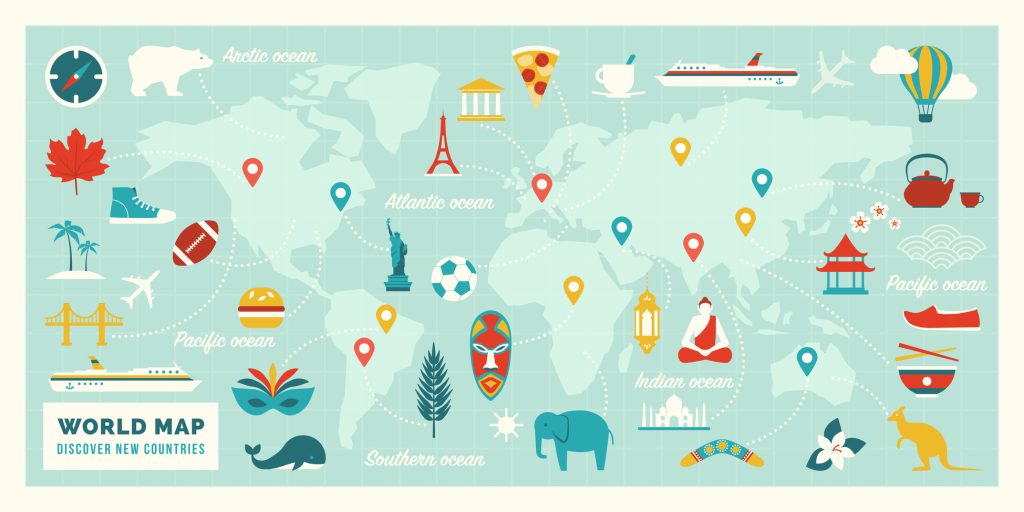
In the same way, if you are traveling through a country by car, being able to see the main roads can take you one way or another and thus be able to get to know a region more thoroughly.
#4 Design the essential route
Everyone has their tools, in my case, either by profession I have everything in excel. I have it inside my Google drive, I can share it with people who travel and I can open it from anywhere in the world with or without coverage (offline mode). Another positive part is not having to carry printed papers with me and I keep reading and modifying my route as I travel. You can put details and relevant information about each site, the method of transport that you are going to use to move from one place to another, what you visit each day, where you sleep each day, better places to eat etc …
It is not quantum physics and it may seem very obvious but there is excellence in planning.

With all this and what you have learned from each place, you will have made a “self” proposal of how much time to invest in each place.
#5 Planning and improvisation
There are two great realities in my experience, Asia and Latin America and the rest of the world. Let’s see why:
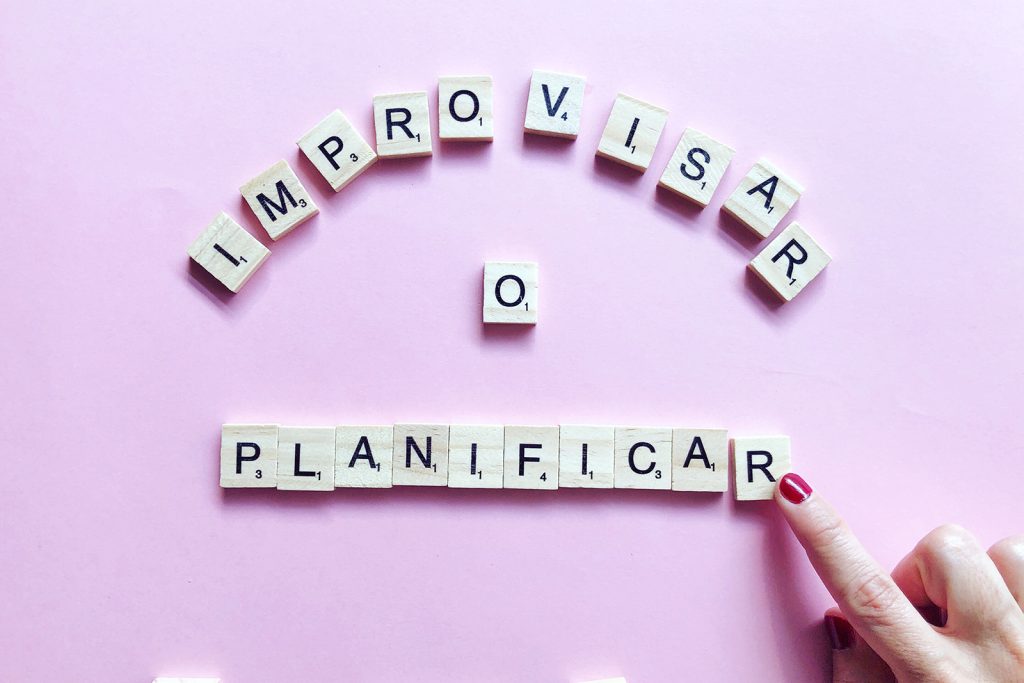
Asia and Latin America: They are perfect destinations for improvisation for both hotels and flights. Fear not, the hotel offer is very large, there is a wide variety of accommodation for all types of budgets and, most importantly, prices are practically constant throughout the year. So why mortgage my trip in advance if I am not sure of the route or the days I want to be in each place? In addition, in all these regions there are countless low-cost airlines and prices are always very constant. There is life beyond Ryanair.
Do not take it at face value, there are very little commercialized or very expensive routes. It is everyone’s responsibility to know how to find their gray scale.
Recommendation: PLAN BUT DO NOT BOOK
Europe, USA and other western regions: Unlike in Asia and Latin America my recommendation is that you take most of your accommodation and flights booked a few days in advance or open with free cancellation. Not only for accommodation, but museums, emblematic buildings and sporting events. The prices of flights and hotels tend to rise a lot in the last days and availability is limited due to high demand and in certain cases limited supply, so do not leave it until the day before. As for tickets for the sites, particularly post covid, you must have everything booked if you do not want to arrive in Paris and realize that you cannot climb the Eiffel Tower until Wednesday of next week.
Recommendation: PLAN AND BOOK IN ADVANCE
#6 Identify the best hotels and restaurants
Compare, compare and compare. When it comes to accommodation, you have to be very clear about two things: the budget and the type of experience you want to live. Do you have a budget of € 10 or € 150 per night? Are you traveling alone and need to make friends or are you traveling as a couple and looking for a romantic place? Are you barely in the hotel and want a clean place? No matter what the answer is, the process is the same. Even if you are not going to make the reservation on-site, it is important to do previous work to ensure that your expectations are met:
Browse incognito mode: Don’t let cookies raise the prices of your searches. It is not a secret that every time you enter a hotel search engine your preferences are recorded and the system knows that you have shown interest in it. That can lead to price increases over the initial prices that you have seen.
Filters: Filters exist and must be used. When you enter a booking engine, start by putting some good filters. You do not want to waste time exploring options that do not serve you, time is money. So sign up for the following:
- Rating: From the outset, I never look for accommodation with less than an 8/10 on any platform, be it hostels or luxury hotels. People usually give good marks if they have had a good stay, but they tend to be harder on negative ones. From my own experience, everything that is below a 7/10 is usually dirty and clean places that leave a little to be desired, bad staff, badly located or with a bad atmosphere. Between 7-8 / 10 there is a very varied universe and it is worth exploring in a second round. Make sure the ratings are based on a minimum of scores, if it has a 10/10 with 9 reservations it is suspicious, I prefer the 9/10 with 1,200 reservations.
- Available accommodation: Has it ever happened to you that you fell in love with accommodation that is already 100% reserved? Don’t waste time and take them out of your search beforehand!
- Budget per night: The best way not to fall into the temptation is to try to avoid it and not put the honey on your lips, so filter at the beginning what is already a disproportionate budget for you.
Sort by: By default the search engines will put you the sponsored accommodations or those with which they earn more money. So order from cheapest to most expensive, many € 50 hotels are better than € 100 hotels with even worse ratings and reviews. Ordering from cheap to expensive is not poor.
Read reviews: Ratings are the result of a sum of scores in various categories. The hostel or hotel that you like may be the best rated in Thailand but if you travel alone and no one in the comments talks about their experience there meeting people, it will not work for you and that 10/10 will be a 5/10 for you.
It is important to read comments from people who are culturally similar to you. Cleaning standards are not the same for all cultures or nationalities. So look for comments in languages or of a nationality similar to yours to maximize the cultural fit when reading the reviews.
Did you know that you can search for keywords in comments? That’s right, look for words like friends, bathrooms, cleaning, rest, dirty, noise, staff etc … To see first-hand what is most relevant to you and order the comments from worst to best to see what is most relevant. criticize people and how that can affect you or if they are just totally isolated negative comments.
Compare prices and advantages: The same hotel can be advertised on several platforms, although it is also true that for simplicity some only collaborate with certain search engines.
- Compare: Look for the same accommodation on different pages and even on its official website to see on which platform you get the best price.
- Loyalty programs: Many platforms have different loyalty programs. Booking has genius, a two-level program that gives you certain discounts and advantages in a certain number of accommodations. Hotels.com has a loyalty program that every 10 nights you have a free one for the average value of your 10 previous reservations. Through your banks and credit cards you can exchange nights for miles, such as AMEX with Meliá Rewards.
- Discount codes: Discounts on your reservation of X € or X% off your purchase by entering the code of another person or friend. You can also use cards that guarantee a certain discount, N26 returns 10% of your purchases in Booking to your card 30 days after the end of your stay if you do so through the following link. If you don’t have an N26 register and obtain 25€ free credit.
Save the accommodation as a favorite in your account for when you want to make your reservation. It is a fairly unknown option, but in most search engines you can use travel categories to save your favorite accommodations to reserve them later. If you are going to improvise, I recommend having a pair in each place to decide based on your final mood.
#7 Let yourself go
Perhaps the most important point of all. Don’t let over-planning ruin your trip, or leave a place without having discovered all of it. Planning means knowing what you want to do and how you are going to carry it out.
Be flexible, from a distance you can be very clear about what you want to do and the information can be relatively limited. For that reason you should talk to locals, ask people and go to the places where they go, those are the real places and the ones that most likely do not appear on the internet and in any travel guide.
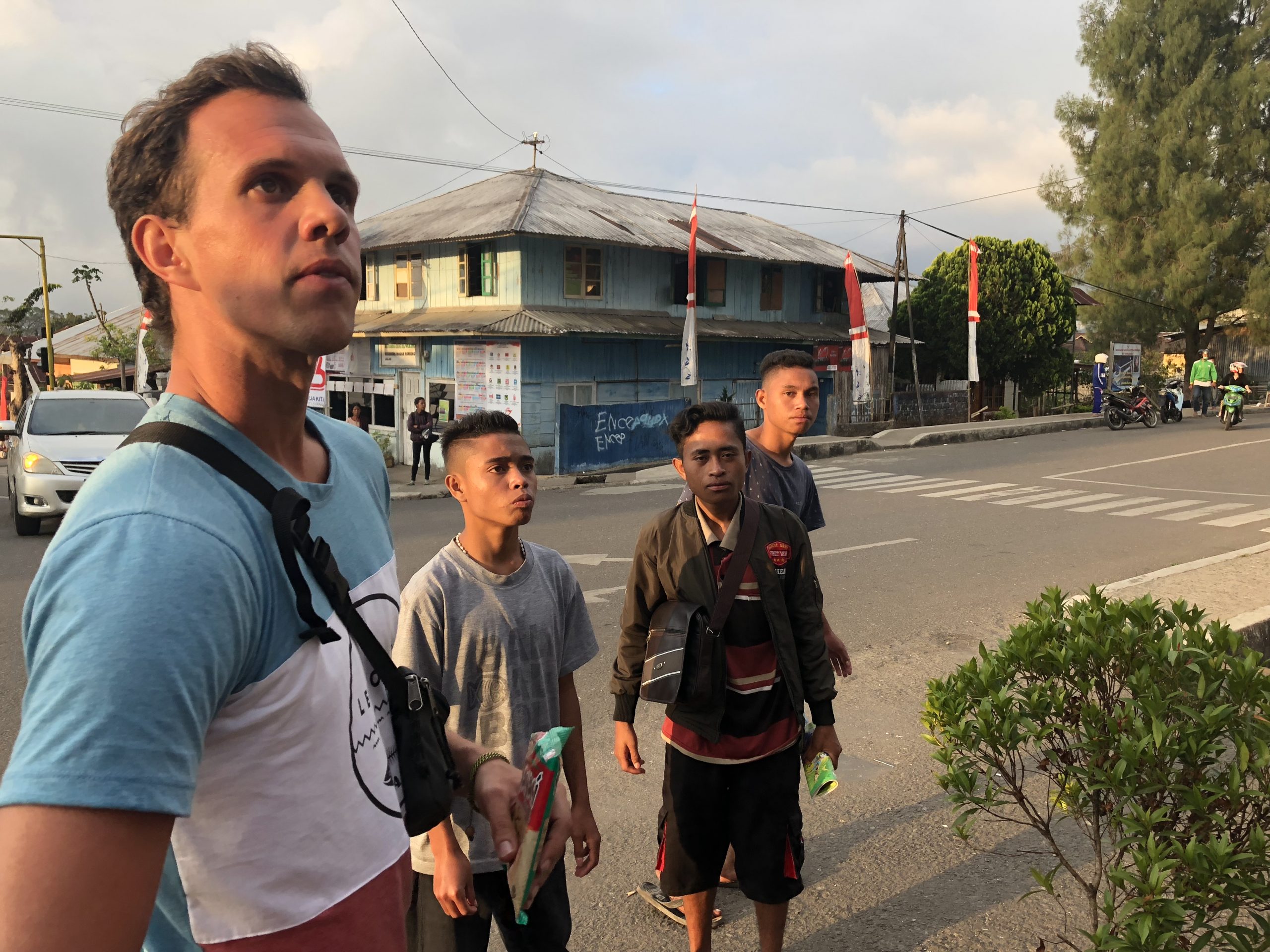
Finally, do not be afraid of losing € 50 of a hotel that you will not go to or losing your plane to delve deeper into the site that you are discovering and you are falling in love with.
